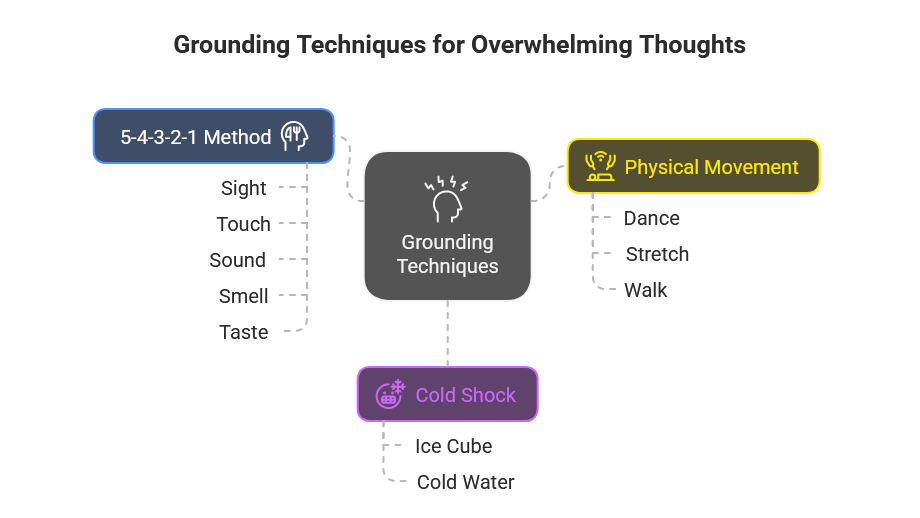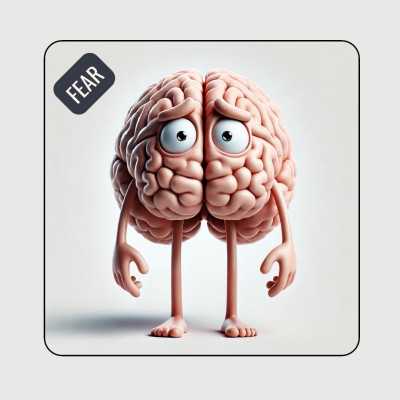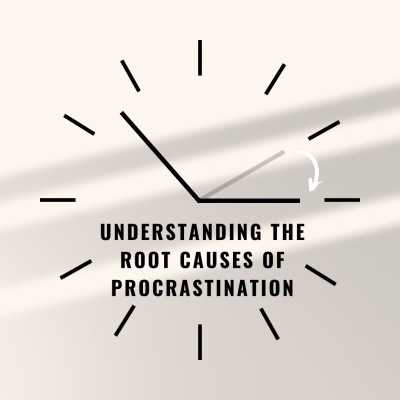Search in blog
Blog categories

How to Deal With Overwhelming Thoughts: Your Guide to Finding Calm in the Chaos
We’ve all been there: lying awake at 3 a.m., mentally replaying that awkward conversation from earlier, or staring at a to-do list that seems to grow faster than a toddler’s laundry pile. Overwhelming thoughts can feel like a storm in your mind - loud, relentless, and impossible to ignore. But here’s the good news: you’re not powerless against them. Let’s break down practical, research-backed ways to navigate these mental whirlwinds and reclaim your peace.
What Are Overwhelming Thoughts?
Overwhelming thoughts are persistent, intrusive ideas or worries that hijack your focus and make it hard to function. They often stem from stress, uncertainty, or unmet needs, and they can show up in different ways:
- Rumination: Replaying past mistakes or hypothetical scenarios.
- Catastrophizing: Assuming the worst-case outcome.
- Decision paralysis: Feeling stuck by too many choices.
Whether it’s anxiety, depression, or everyday stress fueling them, these thoughts share a common trait: they make you feel like you’re drowning in your own mind.
How to Stop Overwhelming Thoughts: Start With Mindfulness
One of the most effective ways to halt mental chaos is mindfulness - a practice that roots you in the present moment. Studies show that mindfulness reduces activity in the brain’s “default mode network,” the area linked to overthinking. Here’s how to try it:
- Breathe like it’s your job: Inhale for 4 counts, hold for 4, exhale for 6. This resets your nervous system.
- Label your thoughts: Instead of fighting them, say, “I’m having the thought that…” to create mental distance.
- Use apps for guidance: Try Calm or Headspace for bite-sized meditations.
Mindfulness isn’t about emptying your mind - it’s about observing without judgment. Think of it as hitting the “pause” button on your mental playlist.
Overwhelming Thoughts: How to Cope When It Feels Like Too Much
When your brain feels like a browser with 100 tabs open, grounding techniques can help you “close” a few. These strategies engage your senses to anchor you in the here and now:
- 5-4-3-2-1 method: Name 5 things you see, 4 you feel, 3 you hear, 2 you smell, and 1 you taste.
- Cold shock: Splash your face with icy water or hold an ice cube. It triggers a physiological “reset”.
- Move your body: Dance, stretch, or walk - physical activity lowers cortisol (the stress hormone).
Grounding works because it redirects your brain’s focus from abstract worries to tangible realities.

How to Control Overwhelming Thoughts by Organizing Your Mind
Chaotic thoughts thrive in mental clutter. Let’s declutter:
| Technique | How It Works | When to Use It |
|---|---|---|
| Journaling | Dump thoughts on paper to spot patterns | Morning or before bed |
| Prioritization | Rank tasks by urgency/importance | When feeling decision paralysis |
| Time-blocking | Schedule specific times for tasks/worries | During work or study hours |
Writing down your thoughts can literally “get them out of your head,” making them feel more manageable. As Healthline notes, overthinkers often benefit from externalizing their worries.
How to Calm Overwhelming Thoughts Before They Spiral
Prevention is key. Build daily habits that reduce mental static:
- Set boundaries: Say no to non-essential tasks. Your time is finite.
- Practice self-compassion: Talk to yourself like you’d comfort a friend. Research shows self-kindness lowers anxiety.
- Create a worry window: Designate 10 minutes daily to process fears. When they pop up outside that time, say, “I’ll address this later.”
Overwhelming Thoughts and Mental Health: Depression, Anxiety, and Beyond
While everyone experiences overwhelm, certain mental health conditions amplify these thoughts:
- Overwhelming Thoughts Depression: Depression often brings persistent negative thinking. Cognitive Behavioral Therapy (CBT) can help reframe these patterns.
- Overwhelming Thoughts Anxiety Disorder: Anxiety fuels “what if?” scenarios. Exposure therapy and mindfulness are proven relievers.
- Overwhelming Thoughts Schizophrenia: Intrusive thoughts here may feel detached from reality. Medication and therapy (like CBT for psychosis) are critical.
If your thoughts interfere with daily life, seek a professional. BetterHelp offers accessible online therapy options.
Overwhelming Thoughts When Falling Asleep: Why Your Brain Parties at Night
Ever notice how worries love to crash your bedtime? Blame it on fatigue lowering your mental defenses. Try these fixes:
- Write a brain dump: Keep a notebook by your bed to jot down thoughts.
- Visualize a “mental locker”: Imagine storing worries in a locker to revisit tomorrow.
- Listen to sleep stories: Apps like Calm offer soothing narratives to distract your mind.
The Bottom Line: You’re Stronger Than Your Thoughts
Overwhelming thoughts are like uninvited houseguests - they’ll show up, but you don’t have to let them stay. By understanding their roots and using tools like mindfulness, grounding, and organization, you can regain control. Remember:
- Progress > perfection: Even small steps matter.
- You’re not alone: Millions grapple with this - reach out if you need help.
Final Thought: Your mind is a powerful tool, but it’s not always your friend. Treat it with patience, curiosity, and a little humor. After all, even storms pass - and clearer skies await. 🌤️
Related posts
 Why is it Worth Being Self-Aware?
Why is it Worth Being Self-Aware? Understanding Fear | Learning About the Psychological and Physiological Aspects
Understanding Fear | Learning About the Psychological and Physiological Aspects How to Build and Sustain Motivation for Change
How to Build and Sustain Motivation for Change What To Do When You Are Overwhelmed And Stressed | A Simple Guide to Finding Your Calm
What To Do When You Are Overwhelmed And Stressed | A Simple Guide to Finding Your Calm Why We Delay and How to Address It
Why We Delay and How to Address It
Leave a comment